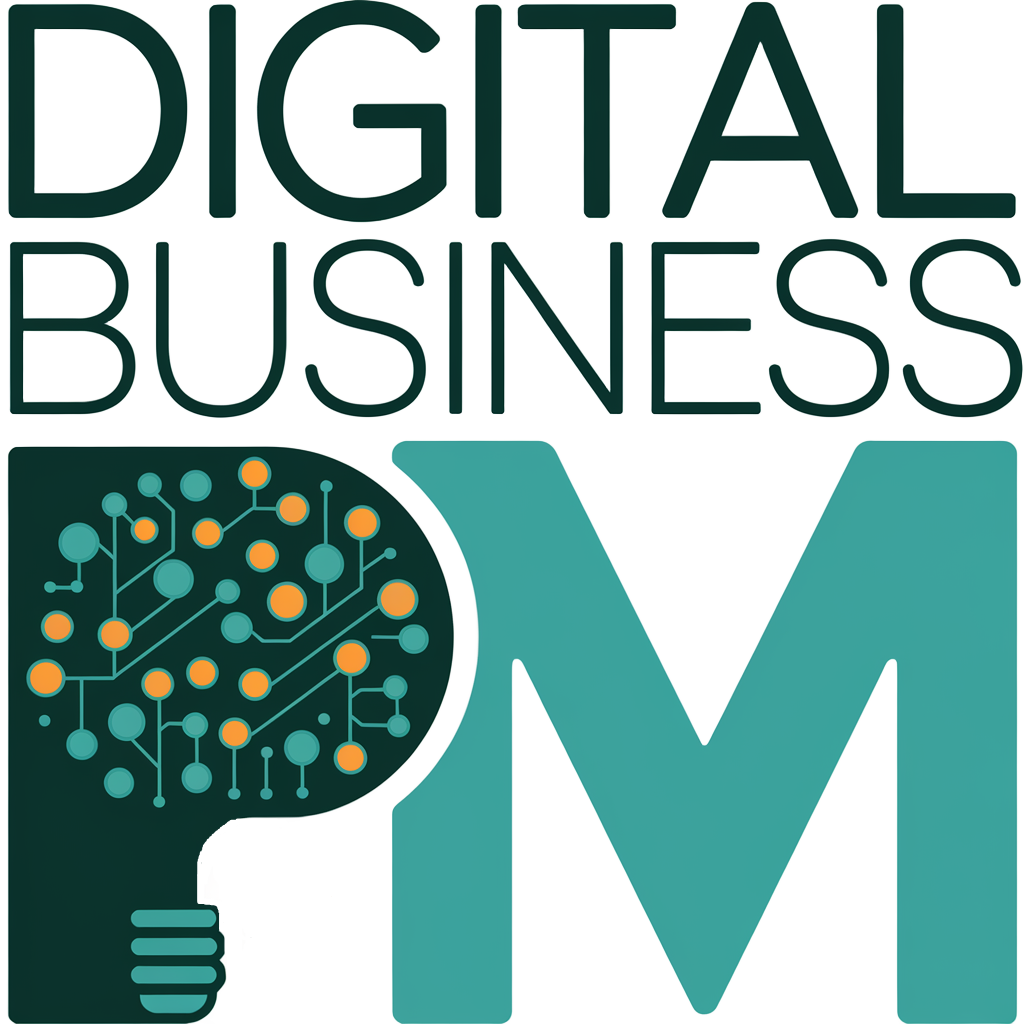As a digital entrepreneur, you’re juggling multiple responsibilities while trying to launch new products and services. The Project Management Body of Knowledge (PMBOK®) Guide offers proven principles that can help solopreneurs and small business leaders manage projects more effectively, reduce overwhelm, and increase the likelihood of success—without requiring enterprise-level resources.
Project Management for the Digital Entrepreneur
Despite its exotic-sounding name, you don’t have to go on safari or off to mythical lands to find the PMBOK®.
Starting and running a digital business is an exhilarating venture, filled with trials and opportunities. As a business owner, you may have already taken on roles handling everything from content creation and social media to product development and customer service.
Adding in projects to manage over and above daily business responsibilities can threaten stress overload for an already burdened digital entrepreneur. That’s where project management, specifically the principles from the PMBOK®, can be of tremendous value.
If you hire a project manager, watch videos, read articles online about managing projects, or participate in online courses about the topic, it’s helpful to have some background on the source of the most reliable information. You may not be in the market for the PMBOK® guide itself, but knowing about the tools, techniques, and methods recommended in the PMBOK® can be constructive for your digital business practice.
What is PMBOK®?
PMBOK®, which stands for Project Management Body of Knowledge, is a collection of guidelines and best practices for project management. Published by the Project Management Institute (PMI)®, the PMBOK® Guide is currently in its seventh edition, although the sixth edition principles remain in practice as well.
The PMBOK® Guide encompasses all aspects of project management, from the beginning of a project to its conclusion. It describes a framework and best practices for managing projects effectively. The sixth edition deconstructed project management into five process groups and ten knowledge areas. It is process-based with steps that continue to serve well for project management. You will often see references to these in articles, books, and videos.
The current seventh edition emphasizes a systems approach focusing on value delivery for the business or organization and its stakeholders. It is a holistic approach that recognizes projects are not carried out in isolation. Project managers are encouraged to consider strategy and objectives in decision-making. This systems approach may be particularly interesting to the digital entrepreneur because of its emphasis on delivering value in producing digital services and products.
Also likely to be especially helpful for digital businesses is its increased focus on tailoring project management to the unique needs of each project and its environment. It’s recognized that managing a project is not a one-size-fits-all activity. Methods and practices are based on project size, complexity, and other relevant considerations. Digital business owners and creatives who often own or work in small digital businesses must be able to adapt rapidly to changing market conditions and client demands.
Key PMBOK® Components
The seventh edition of the PMBOK® identifies 12 project management principles:
- Stewardship
- Team
- Stakeholders
- Value
- Systems thinking
- Leadership
- Tailoring
- Quality
- Complexity
- Risk
- Adaptability and resiliency
- Change
It also defines eight project performance domains (interrelated activities critical to project outcomes):
- Stakeholders
- Team
- Development approach and life cycle
- Planning
- Project work
- Delivery
- Measurement
- Uncertainty
Practical Tools for Digital Entrepreneurs
The PMBOK® offers models, methods, and artifacts to support activities in the performance domains. These tools and best practices can be used to ensure success for projects and your business. “Artifact” in project management means documents, templates, and the deliverables or output of a project.*
For a digital entrepreneur, artifacts might include:
- A product launch plan document
- A content calendar template
- The final online course you deliver to students
- A marketing campaign report
Why PMBOK® Matters for Your Digital Business
You may be wondering why as a digital business owner you should even care about a guide that seems tailored to larger corporations. The great thing about the PMBOK® is its versatility. Regardless of the size of your business or project, the principles outlined in PMBOK® can assist you. Small digital businesses that adopt PMBOK® principles can enhance their project management capabilities, improving their chances of success.
Real-World Example: Sarah, a solopreneur running an online education business, struggled with launching her new course while maintaining her existing offerings. By applying PMBOK® principles of scope management and resource planning, she created a realistic 12-week course development timeline that accounted for her existing workload. The result? She launched on schedule without the burnout she experienced with previous launches.
Here are key reasons why PMBOK® is useful to a digital business:
1. Efficient Resource Utilization
PMBOK® guides defining project objectives and resources. This includes the resource of time so realistic timelines can be created. For digital entrepreneurs, this means you can realistically assess how long it will take to create that new lead magnet, develop a course, or redesign your website—preventing the common problem of underestimating project timelines.
2. Enhanced Project Planning
Effective project planning is crucial for digital businesses to deliver projects on time and within budget. PMBOK® helps digital business owners understand the importance of project planning, including defining the scope of a project, clearly identifying the needed resources, and accurately assessing risks and opportunities.
For example, when planning a new digital product launch, PMBOK® principles would guide you to:
- Clearly define what is (and isn’t) included in version 1.0
- Identify all tasks required from conception to launch
- Create a realistic timeline accounting for your existing workload
- Anticipate potential challenges (like technical issues or marketing delays)
This enables you to create comprehensive project plans that mitigate issues and improve project success rates.
3. Improved Communication
Communication breakdowns can hinder project progress, even for solopreneurs who collaborate with contractors or service providers. Misunderstandings can develop among team members or stakeholders. PMBOK® emphasizes the importance of effective communication throughout the project.
For digital entrepreneurs working with virtual teams, PMBOK® suggests guidelines for establishing communication channels, ensuring that everyone involved is well-informed and aligned with project goals. This is particularly valuable when working with freelancers, virtual assistants, or other service providers on your digital products.
4. Risk Management
Every digital project carries risks that may impact its success. PMBOK® provides an approach to identify, assess, and manage risks effectively. For example, when launching an online course, risks might include technical platform issues, low enrollment, or content creation delays.
By implementing risk management strategies prescribed in PMBOK®, digital business owners can minimize the impact of risks, protect their investments, and increase the likelihood of success. This might mean having contingency plans for tech problems or building buffer time into your project schedule.
5. Consistent Project Management Practices
PMBOK® offers project management practices that have been widely recognized and accepted globally. Digital business owners who adopt these practices can:
- Create repeatable processes for recurring projects (like content creation)
- Reduce the mental load of managing multiple initiatives
- Gain credibility when pitching services to larger organizations
- Collaborate more effectively with contractors familiar with PM principles
Hiring a project manager familiar with the PMBOK® Guide or certified by the PMI® will ensure the business person can communicate clearly and work more readily with that individual.
Overcoming Common Objections
Many digital entrepreneurs avoid formal project management because they believe:
- “It’s too complicated for my small business”
- “I don’t have time for all that documentation”
- “It’s only for tech or construction projects”
The truth is that PMBOK® principles can be scaled to businesses of any size. You don’t need to implement every process—instead, start with the aspects that address your biggest challenges. Even implementing basic scope definition and timeline planning can dramatically improve project outcomes.
Applying PMBOK® to Common Digital Business Projects
The PMBOK® approach can be tailored to various digital business projects:
Creating and launching a new online course:
- Define clear course objectives and content scope
- Create realistic content development timelines
- Identify resource needs (platform, design, marketing)
- Establish quality standards for materials
- Plan for tech testing before launch
Website redesign project:
- Define specific goals and scope of the redesign
- Create a phased approach to prevent disruption
- Identify stakeholders who need to approve designs
- Establish testing plans before going live
- Create risk mitigation for potential technical issues
Developing a content marketing strategy:
- Define clear goals and success metrics
- Create realistic content production schedules
- Plan for resource needs across different platforms
- Establish review and approval workflows
- Monitor performance and adapt as needed
Conclusion: Start Small, Gain Big Results
In essence, PMBOK® offers an organized approach to project management that can benefit every digital business owner. Even if you don’t implement each guideline verbatim—as if! what digital entrepreneur has time for that!—understanding the principles of PMBOK® can demystify project management, making it more manageable and approachable.
The PMBOK® guide is a resource whatever the project, whether creating and launching a new digital product, enhancing your website, developing a new course offering, or overseeing a marketing campaign. As a digital business owner, embracing these principles and using project management tools can significantly contribute to your success in the marketplace.
Next Steps for Your Digital Business
Ready to bring some project management structure to your digital business?
- Identify one upcoming project where better planning could make a difference
- Apply just 2-3 PMBOK® principles to that project
- Document what works and what doesn’t
- Gradually build your own PM system based on these proven principles
* For those who’ve been doing AI art generation, an artifact is one of those pesky spots that appear on an image and need to be removed, or if you have malfunctioning equipment, an artifact may be what it’s generating, but to a project manager, an artifact is desirable unless someone did it wrong! So it’s always wise to be aware of the differences in jargon across various professions.
This article has been revised and expanded from the original article Demystifying the PMBOK for Small Business, June 1, 2023.
[Download our free Project Planning Template for Digital Entrepreneurs →]
References: Project Management Institute. (2021). A Guide to the Project Management Body of Knowledge (PMBOK® Guide) (7th ed.) Project Management Institute, Inc.
PMBOK® and PMI® are registered marks of the Project Management Institute, Inc.
Visit the Project Management Institute online and check out the resource website ProjectManagement.com




